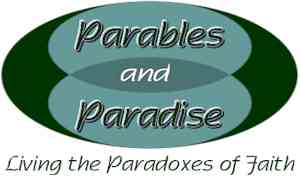
 |
|
Read the parable about the rich fool in Luke 12:13-21 and the somewhat similar parable in the Gospel of Thomas 63.
|
Luke 12:13-21 Someone in the crowd said to him, "Teacher, tell my brother to divide the family inheritance with me." 14 But he said to him, "Hey, man, who set me to be a judge or arbitrator over you?" 15 And he said to them, "Watch out and be on your guard against all kinds of greed; for one's life does not consist in the abundance of possessions." 16 Then he told them a parable: "The land of a certain rich man produced abundantly. 17 And he reasoned to himself, 'What should I do, for I have no place to store my crops?' 18 Then he said, 'I will do this: I will pull down my barns and build larger ones, and there I will store all my grain and my goods. 19 And I will say to my soul, 'Soul, you have many goods laid up for many years; relax, eat, drink, be merry.' 20 But God said to him, 'You fool! This very night your soul is being demanded of you. And the things you have prepared, whose will they be?' 21 So it is with those who store up treasures for themselves but are not rich toward God." |
Gospel of Thomas 63* Jesus said, "There was a rich man who had much money. He said, 'I shall put my money to use so that I may sow, reap, plant, and fill my storehouse with produce, with the result that I shall lack nothing.' Such were his intentions, but that same night he died. Let him who has ears hear." |
*The Gospel of Thomas is a collection of 114 sayings of Jesus discovered in a Coptic version in 1945/6 in Egypt. Fragments of a Greek original can be dated back to around 140 A.D. The Gospel of Thomas shows the influence of an early Christian heresy called Gnosticism, and so Christians do not regard it as the inspired Word of God like the Bible is. It is still very important to study, however, because the sayings it records are versions independent of those recorded in the canonical Gospels.
Further information to help us make sense of the parable:
| Isaiah 22:12-14 In that day the Lord GOD of hosts called to weeping and mourning, to baldness and putting on sackcloth; {13} but instead there was joy and festivity, killing oxen and slaughtering sheep, eating meat and drinking wine. "Let us eat and drink, for tomorrow we die." {14} The LORD of hosts has revealed himself in my ears: Surely this iniquity will not be forgiven you until you die, says the Lord GOD of hosts. |
1 Corinthians 15:32
If the dead are not raised, "Let us eat and drink, for tomorrow we die." |
- Rich Man: Soul, you have many goods laid up for many years.
- God: Fool! This very night your soul is being demanded of you.
| Psalm 39:4-6 "LORD, let me know my end, and what is the measure of my days; let me know how fleeting my life is. {5} You have made my days a few handbreadths, and my lifetime is as nothing in your sight. Surely everyone stands as a mere breath. Selah {6} Surely everyone goes about like a shadow. Surely for nothing they are in turmoil; they heap up, and do not know who will gather. |
Ecclesiastes 2:18-19 I hated all my toil in which I had toiled under the sun, seeing that I must leave it to those who come after me {19} --and who knows whether they will be wise or foolish? Yet they will be master of all for which I toiled and used my wisdom under the sun. This also is vanity. |
Have no fear, little flock; have no fear, little flock,
For the Father has chosen to give you the Kingdom; have no fear, little flock!
 |
 |
 |
 |
 |
 |
|